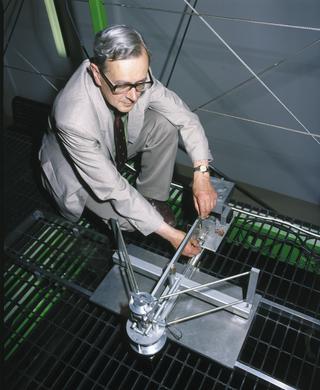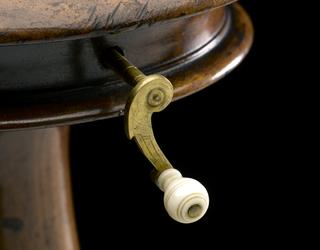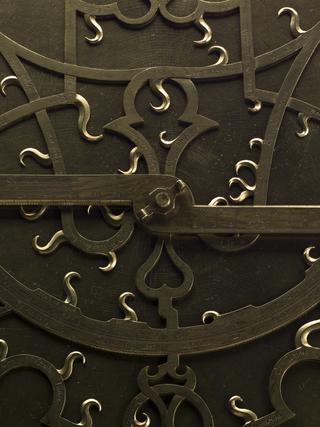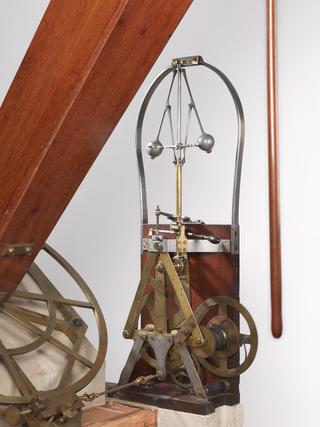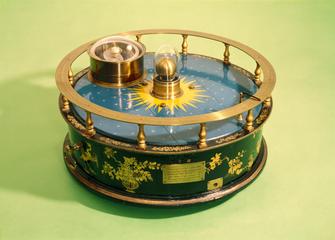
Prototype beam splitter for the Advanced Laser Interferometer Gravitational Wave Observatory (aLIGO)
- Made:
- 2008 (prototype) in Chilton





















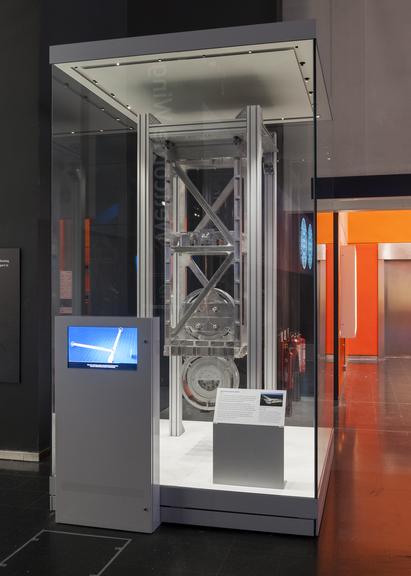




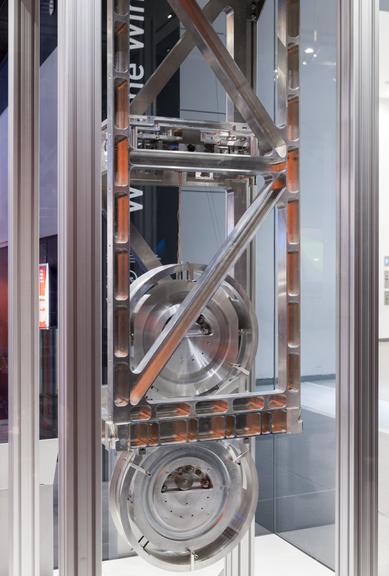

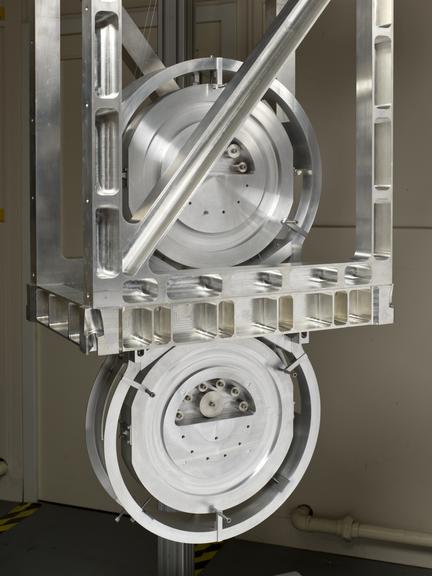

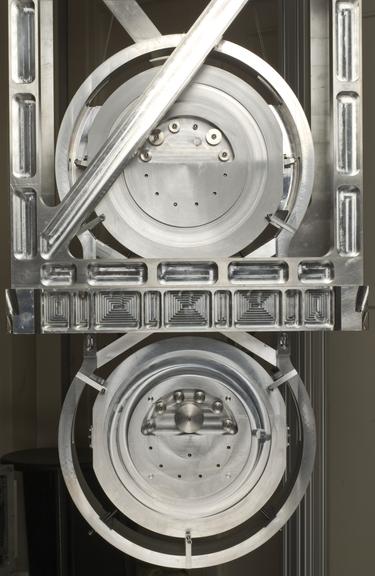


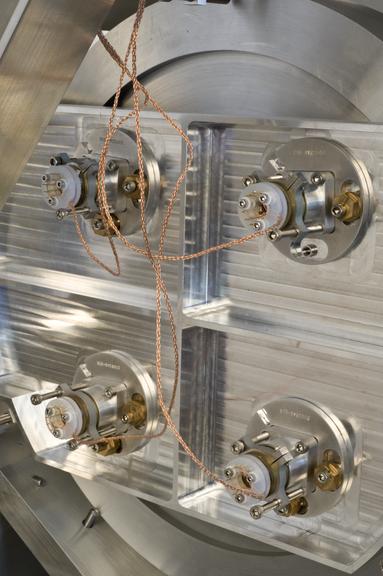
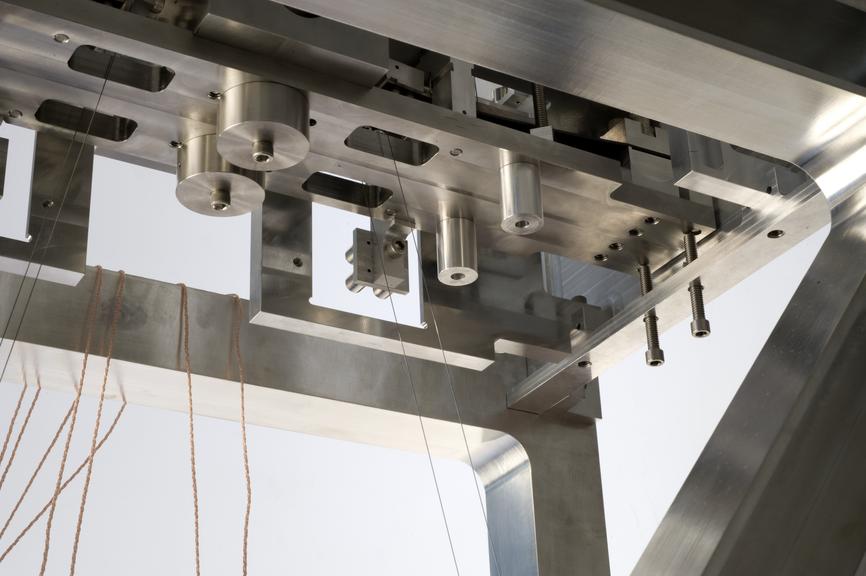


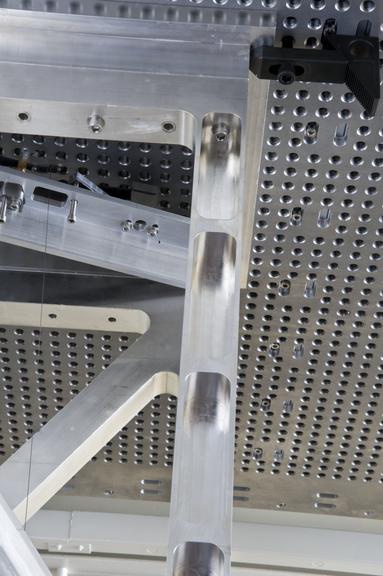
Prototype suspension system for Advanced LIGO (Laser Interferometer Gravitational Wave Observatory) gravitational wave detector with dummy metal test masses. Made by Rutherford Appleton Laboratory, Chilton, England, 2007-2008.
Faint ripples are pulsing through the universe. Caused by violent cosmic events, they are gravitational waves. Albert Einstein predicted their existence in 1916, but he doubted we would ever find them. One hundred years on, a gravitational wave was detected on Earth for the first time, picked up by the LIGO experiment in the USA. You are looking at part of the technology that made this historic moment possible. LIGO’s discovery won the 2017 Nobel Prize in Physics. Studying gravitational waves has already begun to revolutionise astronomy, from probing black holes to uncovering the origin of gold.
The Laser Interferometer Gravitational-Wave Observatory (LIGO) is an international collaboration, based at two sites in the USA. The LIGO experiment works by splitting a laser beam down two 4 km tunnels. and looks for changes in these beams to detect gravitational waves. The beams are then recombined, at which point scientists look for changes in the lengths of the beams that may be caused by a passing gravitational wave. The waves detected by the LIGO team in September 2015 originated from a collision between two black holes 1.3 billion light years away.
LIGO's hardware was upgraded between 2008 and 2015. Dubbed Advanced LIGO (or aLIGO), it had become one of the most sensitive experiments ever constructed. The technology that splits aLIGO’s laser beam was developed at the STFC Rutherford Appleton Laboratory in Oxfordshire. This is a prototype of that technology.
Details
- Category:
- Astronomy
- Object Number:
- L2009-4054
- Measurements:
-
overall: 2601 mm x 920 mm x 1005 mm, 282.5 kg
- type:
- beam splitter and instrument component
- credit:
- On loan from Science & Technology Facilities Council
